
npj Science of Learning
Scope & Guideline
Unlocking the Secrets of Learning Through Scientific Inquiry
Introduction
Aims and Scopes
- Interdisciplinary Research on Learning:
The journal emphasizes research that spans multiple disciplines, including neuroscience, cognitive psychology, educational theory, and technology, to provide a holistic understanding of learning processes. - Neuroscience of Learning:
A significant focus is placed on the neural mechanisms underlying learning, exploring how brain activity influences cognitive processes, memory, and educational outcomes. - Educational Equity and Inequality:
Research addressing issues of educational equity, including the impact of socioeconomic status, cultural factors, and systemic inequalities on learning and achievement, is a core area of exploration. - Innovative Educational Practices:
The journal promotes studies that evaluate and propose innovative educational practices and interventions, particularly those that leverage technology and personalized learning. - Developmental Perspectives:
Research that examines learning across different developmental stages, from early childhood to adulthood, is highlighted, investigating how learning processes evolve over time. - Impact of Environmental Factors:
The journal discusses the influence of various environmental factors, including classroom dynamics, parental involvement, and societal contexts, on educational success.
Trending and Emerging
- AI and Learning Technologies:
Research exploring the role of artificial intelligence in education is on the rise, focusing on how AI can enhance learning experiences, personalize instruction, and provide insights into learning processes. - Socio-Emotional Learning:
There is an increasing emphasis on the importance of socio-emotional factors in learning, including studies that investigate how emotional well-being and social skills contribute to academic performance. - Neuroscience-Informed Educational Practices:
A growing trend involves integrating neuroscience findings directly into educational practices, with studies examining how brain research can inform teaching strategies and learning environments. - Learning in Digital Contexts:
As digital learning environments become more prevalent, research focusing on learning in virtual and augmented reality settings is gaining traction, exploring how these technologies can enhance engagement and understanding. - Impact of COVID-19 on Learning:
The pandemic has spurred a significant increase in research examining the effects of COVID-19 on learning outcomes, addressing issues such as educational disparities and the effectiveness of remote learning strategies. - Interdisciplinary Approaches to Educational Inequality:
Research that combines insights from various disciplines to tackle educational inequality is emerging, focusing on systemic factors that contribute to disparities in learning opportunities and outcomes.
Declining or Waning
- Traditional Learning Theories:
There appears to be a waning focus on traditional learning theories that do not incorporate contemporary findings from neuroscience or technology, as the journal increasingly emphasizes evidence-based practices rooted in empirical research. - Overemphasis on Individual Differences:
Research that predominantly focuses on individual differences in learning without considering systemic factors contributing to educational outcomes is becoming less prominent, reflecting a shift towards a more holistic understanding of educational contexts. - Static Educational Models:
There is a noticeable decline in studies promoting static or one-size-fits-all educational models, as the journal increasingly favors research that advocates for adaptive and personalized learning approaches. - Limited Scope of Cognitive Training:
While cognitive training remains a topic of interest, there's a decreasing trend in studies merely testing cognitive training interventions without linking them to broader educational outcomes or contextual factors. - Solely Behavioral Approaches:
The journal shows a declining interest in research that solely utilizes behavioral approaches to understanding learning, moving towards more integrative methods that consider cognitive and neural underpinnings.
Similar Journals
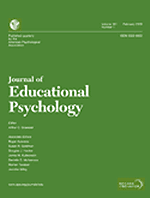
JOURNAL OF EDUCATIONAL PSYCHOLOGY
Elevating Educational Psychology to New HeightsJOURNAL OF EDUCATIONAL PSYCHOLOGY, published by the American Psychological Association, stands as a crucial resource in the fields of developmental and educational psychology. With an impressive impact factor that secures its position in the Q1 quartile of both developmental and educational psychology categories, this journal caters to a diverse audience comprising researchers, educators, and policy-makers. Since its inception in 1910, it has consistently provided groundbreaking research and insights that shape educational practices and psychological theories. The journal’s Scopus rankings reflect its significant influence, being positioned within the top 2% of journals in social sciences education and the top 4% in developmental psychology. Although the journal does not offer open access, its rigorous peer-review process ensures the publication of high-quality articles that advance the understanding of learning processes and educational methodologies. Researchers and practitioners alike will find invaluable contributions that inform and transform the educational landscape.
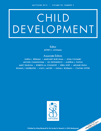
CHILD DEVELOPMENT
Exploring the multifaceted journey of child development.CHILD DEVELOPMENT, published by WILEY, stands as a premier journal in the fields of developmental and educational psychology, education, pediatrics, perinatology, child health, and social work. Established in 1945, it has consistently maintained a strong impact, underscored by its 2023 Q1 ranking in multiple relevant categories, as well as its esteemed positions within Scopus rankings, including a remarkable 14th place in Pediatrics. The journal serves as a vital resource for researchers and professionals, offering rigorous peer-reviewed articles that explore pivotal aspects of child development through a multidisciplinary lens. Although it does not currently offer open access options, CHILD DEVELOPMENT remains influential, addressing critical topics in child psychology, policy implications, and educational practices. Researchers and students alike will find the journal’s comprehensive scope instrumental in advancing their understanding and fostering an evidence-based approach to contemporary child development issues.
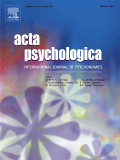
ACTA PSYCHOLOGICA
Elevating the discourse in developmental and cognitive psychology.ACTA PSYCHOLOGICA, published by Elsevier, is a leading journal that has served the field of psychology since its inception in 1936. With an impact factor that reflects its authority and significance in the discipline, this journal has become essential for researchers, professionals, and students alike. Open Access since 2021, ACTA PSYCHOLOGICA ensures that groundbreaking psychological research is widely accessible, promoting the dissemination and application of knowledge across various branches of psychology including Developmental and Educational Psychology and Experimental and Cognitive Psychology. The journal is categorized in the Q1 and Q2 quartiles, highlighting its high-quality contributions to the field, supported by robust rankings within Scopus. Located in Amsterdam, Netherlands, this journal remains a vital resource for advancing psychological science and fostering collaborative research worldwide.
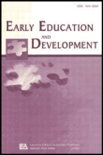
Early Education and Development
Pioneering Research for Tomorrow's LearnersEarly Education and Development is a prestigious journal published by Routledge Journals, Taylor & Francis Ltd, dedicated to advancing the field of early childhood education and developmental psychology. With an ISSN of 1040-9289 and an E-ISSN of 1556-6935, this journal has garnered an impressive reputation, achieving a Q1 ranking in both Developmental and Educational Psychology as well as Education as of 2023. Its influence is reflected in its Scopus rankings, standing at #236 out of 1,543 in Social Sciences (Education) and #83 out of 360 in Psychology (Developmental and Educational Psychology), positioning it in the 84th and 77th percentiles, respectively. Operative since 1989, Early Education and Development serves as a vital resource for researchers, educators, and policymakers by publishing cutting-edge research, theoretical frameworks, and practical applications that shape early educational practices globally. Though it does not currently offer open access options, its contributions remain essential for those looking to stay abreast of the latest developments and best practices in early education.
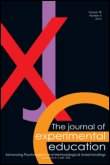
JOURNAL OF EXPERIMENTAL EDUCATION
Unveiling the complexities of learning through experimental inquiry.Journal of Experimental Education, published by Routledge Journals, Taylor & Francis Ltd, is a prestigious platform dedicated to advancing the field of educational research. With an impressive history spanning from 1932 to 2024, this journal covers significant developments in Developmental and Educational Psychology and Education, achieving a Q1 ranking in both categories for 2023. The journal is recognized for its rigorous peer-reviewed articles that explore innovative experimental methodologies and empirical studies that shape contemporary practices in education. Current Scopus rankings further establish its credibility, placing it in the top percentiles among its peers. While it is not an open-access journal, the insights offered through its publications are invaluable for researchers, educators, and students seeking to deepen their understanding of educational phenomena and improve pedagogical approaches. By fostering a community dedicated to research excellence, the Journal of Experimental Education serves as an essential resource for those committed to the advancement of education.

LEARNING ENVIRONMENTS RESEARCH
Unveiling the Future of Learning ExperiencesLearning Environments Research, an esteemed journal published by SpringerNature, occupies a pivotal position in the fields of Education, Communication, Developmental and Educational Psychology, and E-learning. With an ISSN of 1387-1579 and an E-ISSN of 1573-1855, this journal has demonstrated its scholarly impact, boasting a Q1 ranking in key categories according to the 2023 metrics. Its Scopus rankings further underscore its relevance, placing it in the top 10% of journals in Communication and 90th percentile among journals in Developmental and Educational Psychology. Learning Environments Research is dedicated to advancing the understanding of learning environments through innovative research and critical analysis, providing a platform for scholars, educators, and practitioners to explore effective educational practices. While currently not offered as an open-access publication, researchers can access a wealth of knowledge that reflects contemporary issues and research trends in education, ultimately fostering improved learning experiences worldwide. The journal’s ongoing commitment to excellence in research and its international perspective make it a valuable resource for anyone seeking to deepen their understanding of learning environments.

EUROPEAN JOURNAL OF PSYCHOLOGY OF EDUCATION
Elevating understanding in developmental and educational psychology.Welcome to the European Journal of Psychology of Education, a leading scholarly publication dedicated to advancing the fields of developmental and educational psychology. Published by Springer, this esteemed journal boasts an impressive impact factor, firmly placing it in the Q1 quartile for both Developmental and Educational Psychology as well as Education as of 2023. With a Scopus rank of #171 out of 1543 in Social Sciences Education and a #63 ranking out of 360 in Psychology, it represents a vital resource for researchers, professionals, and students seeking to explore innovative educational practices and psychological theories from a European perspective. Founded in 1986, the journal has established itself as a cornerstone of contemporary research over the years and continues to publish high-quality articles that contribute significantly to the understanding of psychological principles in educational contexts. Although it does not currently operate under an open access model, its rigorous peer-review process ensures that only the most impactful studies are included, making it essential reading for those committed to advancing educational psychology.
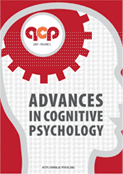
Advances in Cognitive Psychology
Cultivating a Community of Cognitive InnovatorsAdvances in Cognitive Psychology is a premier peer-reviewed journal published by UNIV ECONOMICS & HUMAN SCIENCES WARSAW, dedicated to the exploration of psychological processes underlying cognition. With its open access model implemented since 2005, the journal facilitates wide-ranging dissemination of cutting-edge research across various branches of psychology, including applied, clinical, experimental, and cognitive psychology. Despite its modest standing in terms of impact factor, reflected in its Q3 and Q4 rankings across numerous subfields, it remains an important platform for emerging researchers and seasoned professionals alike, aiming to foster insight into complex mental processes and enhance understanding of behavioral patterns. The journal's commitment to accessibility empowers a diverse community of readers, including students, to engage with innovative studies and reviews, contributing to the collective knowledge within the psychological sciences. Located in Poland, Advances in Cognitive Psychology is open for submissions from worldwide researchers, encouraging a global perspective on cognition and behavior.

Journal of Intelligence
Advancing the frontiers of intelligence research.The Journal of Intelligence, published by MDPI, is a premier open access journal dedicated to advancing the understanding of intelligence in its multifaceted forms. Since its inception in 2013, this journal has made significant contributions to the fields of Cognitive Neuroscience, Developmental and Educational Psychology, and Experimental Psychology, consistently reflecting its growing impact within the academic community. Located in Switzerland, the journal benefits from a global reach and has been indexed in Scopus, achieving respectable ranks across various categories—highlighting its relevance and quality in Social Sciences and Psychology. With an impressive 2023 category quartile ranking of Q2 in Education and Q3 in other relevant fields, the journal is a valuable resource for researchers, professionals, and students seeking to explore theoretical and empirical aspects of intelligence. As an open access publication, the Journal of Intelligence not only promotes the free exchange of knowledge but also ensures that cutting-edge research is accessible to a wider audience, thus fostering innovation and collaboration in the quest to understand the nuances of human intelligence.

INTERNATIONAL JOURNAL OF EARLY CHILDHOOD
Advancing early childhood education through innovative research.INTERNATIONAL JOURNAL OF EARLY CHILDHOOD, published by Springer, is a prestigious platform dedicated to the exploration and advancement of knowledge in the fields of Developmental and Educational Psychology as well as Education. With an ISSN of 0020-7187 and E-ISSN 1878-4658, this journal plays a pivotal role in disseminating research findings and theoretical developments related to early childhood education worldwide. Its impact is underscored by its noteworthy rankings, placing it in the Q2 category for Developmental and Educational Psychology and Q1 in Education in 2023, reflecting its significance in the scholarly community. With a robust Scopus rank of #186 out of 1543 in Social Sciences Education and #68 of 360 in Developmental and Educational Psychology, this journal ensures high visibility and engagement for innovative research. Since its inception in 1969, the journal has served as a vital resource for researchers, educators, and policy-makers interested in shaping the future of education through empirical evidence and comprehensive studies.